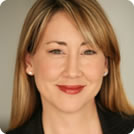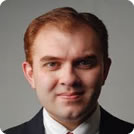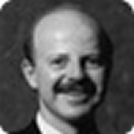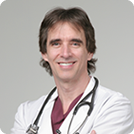International Emergency Medicine
 Here's a career focus that has tremendously expanded over the past decade for Emergency Medicine physicians: International Emergency Medicine.
Here's a career focus that has tremendously expanded over the past decade for Emergency Medicine physicians: International Emergency Medicine.
Not too long ago if you were an Emergency Physician and you wanted to do international work, you simply picked a geographic location and went. There was no formal training and most practitioners learned by doing.
While much of the international work done by these hardy individuals was well intentioned, many reported that it was difficult adjusting to a foreign assignment, especially in a remote region. Few of these physicians had any training in tropical medicine and even fewer had exposure to public health.
In the 1990's a group of Emergency Physicians with extensive experience in international and remote medical care came together to attempt to codify the training needs of physicians who were going to similar locations. Out of these discussions, a formal curriculum was recommended and fellowship programs in International Emergency Medicine began to spring up around the country.
I was fortunate enough to have been one of these International Emergency Medicine fellows from 2002 to 2004. Our program included training in public health, clinical shifts at our academic institution, and extensive field work overseas. It was a great experience and opened the door to a thousand opportunities for me that completely altered the trajectory of my career.
In 2004, towards the end of my fellowship, we published a review article in Prehospital and Disaster Medicine that reported on the International Emergency Medicine fellowships offered around the country to EM trained residents. You can read that article here . When the article was published, there were eight programs available. I find 23 on the website of the Society for Academic Emergency Medicine now.
Of course, there are detractors. When I told people I was going to extend my training for two years to do a fellowship in International Emergency Medicine, a number of my colleagues questioned whether this would be a good investment of time. Why not just sign up with an international organization and go? Why lose two years being a fellow when you could be overseas gaining experience, or working in an emergency department somewhere paying off school loans?
I wasn't sure how to answer these questions when I decided to do the fellowship. At the time, I just thought it was the right thing for me and I was really excited about the opportunity.
In retrospect, it has turned out to have been a pivotal moment in my career and an excellent investment of time. The fellowship in International Emergency Medicine exposed me to leaders in international medicine. It trained me in public health. It offered me incredible opportunities to perform field work in remote locations all over the globe and it taught me how to think like an academic physician-- how to research, how to teach, how to write.
So the question is, if you're an Emergency Medicine doc and you're interested in international work, should you do a fellowship in International Emergency Medicine?
My answer: it depends.
It depends on a lot of factors including where you see yourself in five years and what your long-term goals are for your career. Not everyone has to do a fellowship to do international work. I know plenty of physicians who are not fellowship trained who do short-term international work and absolutely love it.
However, if international medicine is something you think you would like to do full-time as a career focus, then a fellowship might be the right move for you. The longer you spend overseas in remote areas the more important training in public health becomes. Also, the connections you make through a fellowship can open up job opportunities that you never would have found otherwise.
For those who are EM trained, fellowships in International Emergency Medicine are a good place to start a career in international health.





 Post a Comment
Post a Comment





